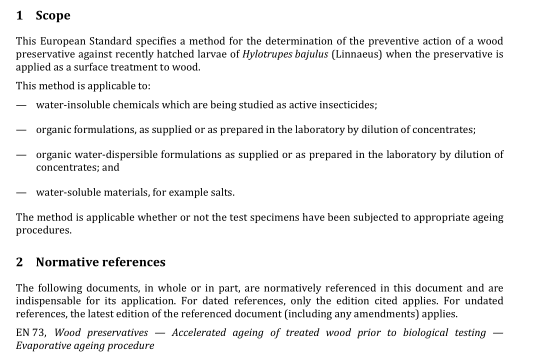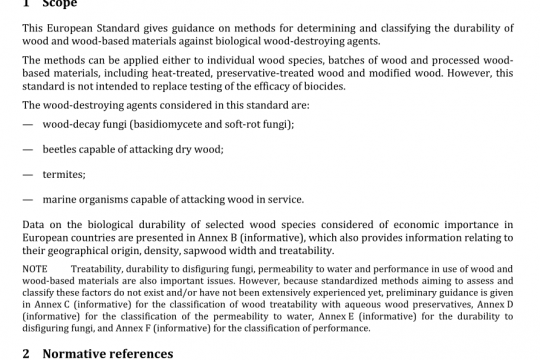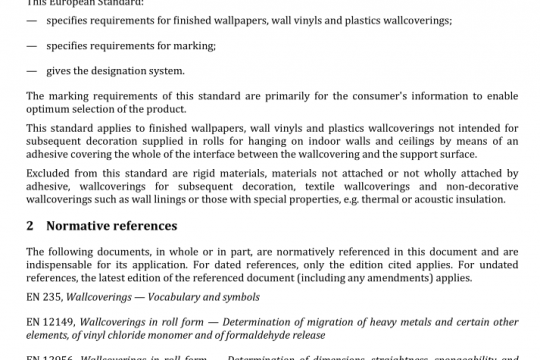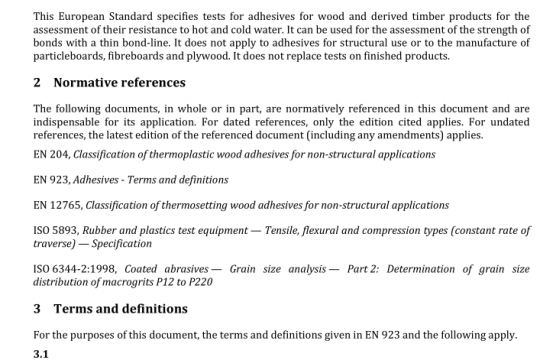BS EN ISO 16140-5 pdf free download
BS EN ISO 16140-5-2020 pdf free download.Microbiology of the food chain — Method validation Part 5: Protocol for factorial interlaboratory validation for nonproprietary methods.
4.2 Validation against a reference method
The validation protocol comprises two phases:
— an in‑house validation study of the non‑proprietary method against the reference method carried out in the organizing laboratory (see ISO 16140‑1:2016, 2.45);
— an interlaboratory study of the non‑proprietary method against the reference method carried out in different laboratories.
The technical protocol for performing the in‑house validation study and the interlaboratory study are given in Clauses 5 and 6, depending upon whether the test method is qualitative or quantitative in nature.
The selected factors for the factorial interlaboratory study should be relevant and applied to both the reference and the alternative method.
4.3 Validation without a reference method
The validation protocol applies to the validation of quantitative methods only. It comprises two phases:
— an in‑house validation study of the non‑proprietary method against the reference value carried out in the organizing laboratory;
— an interlaboratory study of the non‑proprietary method against the reference value carried out in different laboratories.
The technical protocol for performing the in‑house validation study and the interlaboratory study for quantitative methods are given in Clause 6.
5 Qualitative methods — Technical protocol for factorial
interlaboratory validation
5.1 In‑house validation study
The in‑house validation study is the part of the validation process that is performed in the organizing
laboratory. It can be conducted in accordance with the conventional approach or the factorial approach, as described in ISO 16140‑4.
An in‑house validation study can be used to demonstrate the performance of the method for the laboratory that conducted the study. It is the first step in the framework of general method validation.
The in‑house validation study assesses the performance of the method across (food) categories, (food) types and (food) items, whereas the interlaboratory study assesses the performance of the method across laboratories.
5.2 Interlaboratory validation study against a reference method 5.2.1 General considerations The aim of the interlaboratory study is to compare the performance of the reference method to the alternative method in terms of the RLOD obtained by different laboratories. The results of the same set of samples, examined under reproducibility conditions, are compared with pre‑set criteria for the acceptable difference between the reference method and the alternative method. Wherever possible, the study conditions should reflect the normal variation between laboratories. The interlaboratory study is planned by the organizing laboratory. The organizing laboratory prepares the samples and a data sheet for the recording of all experimental data and critical experimental conditions used by each laboratory. Each laboratory shall demonstrate its competence in the use of the alternative and the reference method in accordance with ISO 7218 prior to participating in the study. Technicians involved in the preparation of the samples used in the interlaboratory study shall not take part in the testing of the samples in the interlaboratory study.
5.2.2 Measurement protocol
A minimum of four independent laboratories are required to conduct the test series.
The laboratories shall belong to different organizations or shall be located at different sites.
If all laboratories belong to one organization or network, results of the validation study can only be used by laboratories belonging to this organization or network.
EXAMPLE 1 Laboratories belonging to one public or private organization.
EXAMPLE 2 Network of federal, state and/or provincial laboratories.
EXAMPLE 3 Network of national reference laboratories coordinated by a European Union reference laboratory.
If possible, more than four laboratories should participate, so that results from at least eight technicians are available for analysis even if, for some reason, certain data cannot be used.BS EN ISO 16140-5 pdf download.




